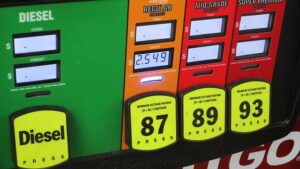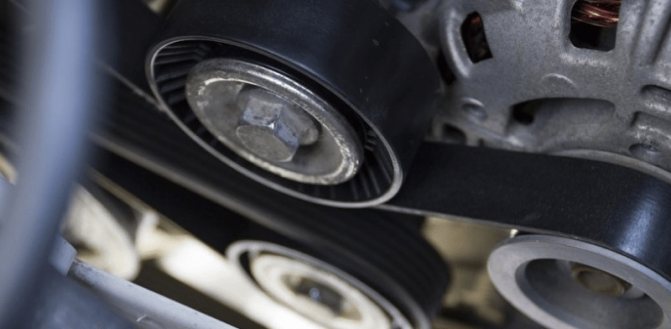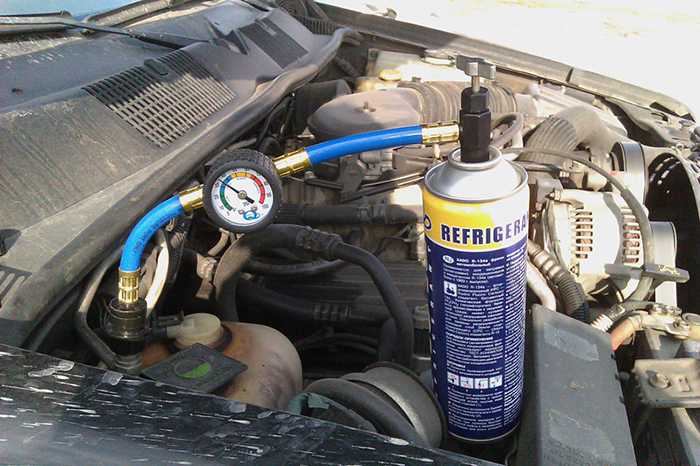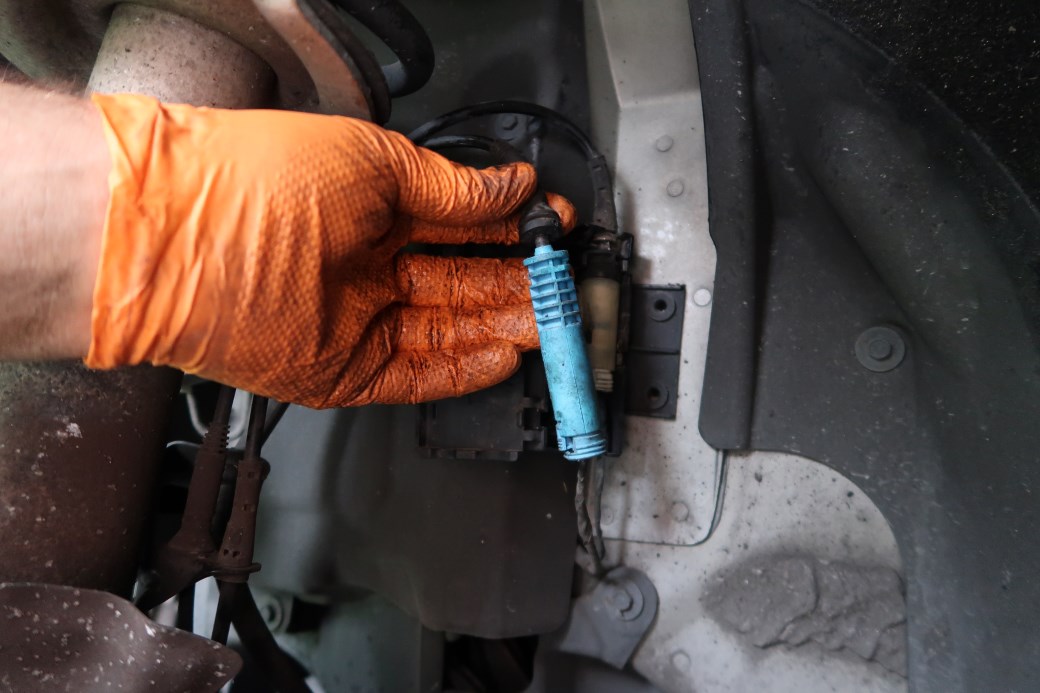 You might be wondering what happens if you put premium gas in a regular gas car. The answer is, not much. Premium gasoline is just that – gasoline with a higher octane rating.
You might be wondering what happens if you put premium gas in a regular gas car. The answer is, not much. Premium gasoline is just that – gasoline with a higher octane rating.
In most cases, using it in a regular engine won’t make it run any better or worse. However, there are a few exceptions to this rule. Let’s take a closer look.
What is the difference between Premium and Regular Gas?
The main difference between premium and regular gas is the octane rating. Regular gas has a lower level, meaning it won’t be as efficient as high-performance engines. Higher levels of ethanol can also lead to engine problems in some cars. It’s safer to use a premium gas car for those needs because it doesn’t contain ethanol. When it comes to automobile engines, premium gasoline has certain benefits when compared with regular gas. Premium gas will cost you more and provide a few additional advantages to a regular vehicle.
What cars need premium gas? Some cars specifically require premium gasoline in order to run at their best. These are typically high-performance or luxury models, like sports cars or those with a turbocharger. Using anything else in these engines can lead to decreased performance, decreased fuel economy, and even damage the engine over time.
In most cases, using premium gas in a regular car won’t make much of a difference. However, if you have a high-performance engine, it’s recommended that you use premium gasoline to get the best results. And if your car specifically requires premium gas, be sure to fill it up with the good stuff to keep your engine running smoothly.
What are the Consequences if You Put Premium Gas in a Regular Gas Car?
You might be wondering what happens if you put premium gas in a regular gas car. The answer is, not much. Premium fuel is just that – gasoline with a higher octane rating.
If you have a car with a high-performance engine, it’s recommended that you use premium gasoline. This is because the higher octane rating helps to prevent knocking and pinging during acceleration. Knocking and pinging can cause damage to your engine over time, so using premium gasoline is a good way to protect it. Another time when you might want to use premium gasoline is if you have a vehicle that’s notorious for knocking. If your vehicle regularly knocks even when you fill it up with regular gasoline, using a higher octane fuel might help to eliminate the problem.
If you have a car with a high-performance engine, it’s recommended that you use premium gasoline. This is because the higher octane rating helps to prevent knocking and pinging during acceleration. Knocking and pinging can cause damage to your engine over time, so using premium gasoline is a good way to protect it.
Another time when you might want to use premium gasoline is if you have a vehicle that’s notorious for knocking. If your car regularly knocks even when you fill it up with regular gasoline, using a higher octane fuel might help to eliminate the problem.
In most cases, however, using premium gasoline in a regular car won’t make any difference. So if you’re not sure whether or not your car needs it, it’s best to stick with the standard fuel.
So, what happens if you put premium gas in a regular gas car? In most cases, nothing at all. However, there are a few exceptions, so it’s important to know what to look for.
What are the Consequences if You Put Diesel in a Gas Car?
Diesel is a type of fuel that’s used in diesel engines. Gasoline engines, on the other hand, use gasoline. So, if you put diesel in a car that runs on gasoline, it won’t run properly. In fact, it could cause damage to your engine.
Diesel fuel is heavier and oilier than gasoline. It also has a higher ignition temperature. That means that if you try to start a gasoline engine with diesel fuel, it probably won’t even turn over. And if it does, the engine could misfire and sustain damage.
So, what are the consequences if you put diesel in a gas car? In most cases, it will not run properly. The engine could even be damaged as a result. Be sure to only use the type of fuel that’s specified for your car, and never try to mix different types of fuel together.
The Octane Rating of Premium and Regular Gasoline Varies
In general, however, regular gasoline has an octane rating of 87, while premium gasoline has an octane rating of 93. That means that premium gasoline is more resistant to knocking and pinging than regular gasoline.
If you have a high-performance engine, it’s recommended that you use premium gasoline. This is because the higher octane rating helps to prevent knocking and pinging during acceleration. Knocking and pinging can cause damage to your engine over time, so using premium gasoline is a good way to protect it.
Another time when you might want to use premium gasoline is if you have a vehicle that’s notorious for knocking. If your car regularly knocks even when you fill it up with regular gasoline, using a higher octane fuel might help to eliminate the problem.
In most cases, however, using premium gasoline in a regular car won’t make any difference. So if you’re not sure whether or not your car needs it, it’s best to stick with the standard fuel.
But what if you Put E85 in a Gas Car?
E85 is a blend of gasoline and ethanol that’s used in cars that have Flex Fuel engines. Flex Fuel engines can run on either E85 or regular gasoline.
If you put E85 in a car that runs on regular gasoline, the engine will still run, but it won’t run as well. The ethanol in E85 will make the engine less efficient and will reduce its power.
E85 will also damage your car’s fuel system if you use it on a regular basis. The ethanol in E85 is corrosive and will eat away at the rubber seals and gaskets in your fuel system. Over time, this can cause serious damage to your car.
So, what happens if you put E85 in a gas car? The engine will still run, but it won’t be as powerful or efficient. Additionally, the ethanol in E85 can damage your car’s fuel system over time. It’s best to only use E85 in Flex Fuel vehicles.
What Happens if You Put 87 Octane in a 93 Car?
If you put 87 octane gasoline in a car that requires 93 octanes, the engine will run, but it won’t run as well. The lower octane fuel will cause knocking and pinging during acceleration. Additionally, the engine will be less powerful and less efficient.
So, what happens if you put 87 octanes in a car that requires 93 octanes? The engine will run, but it won’t run as well. You’ll experience knocking and pinging during acceleration, and the engine will be less powerful and less efficient. It’s best to only use the type of fuel that’s specified for your car.
Can you Mix Premium and Unleaded Gas?
You can definitely mix premium and unleaded gasoline together. In fact, it’s a good way to save money. The only downside is that the engine won’t run as well. Premium gasoline has a higher octane rating than unleaded, so using it in a car that runs on unleaded will cause knocking and pinging. Additionally, the engine will be less powerful and less efficient.
Conclusion
So, if you’re looking to save money, mixing premium and unleaded gasoline is a good way to do it. Just keep in mind that the engine won’t run as well. It’s best to only use the type of fuel that’s specified for your car by a manufacturer.


